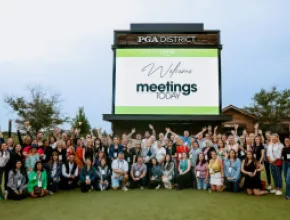The tragic events that seem to impact our world at an ever increasing rate, from mass shootings and natural disasters to criminal acts, are especially dangerous in a legal sense to organizers of meetings and events.
The October 2017 mass shooting in Las Vegas was a particularly sharp reminder that we work in an industry that provides massive soft targets as its business model.
Meeting planners and their organizations have a Duty of Care responsibility to help mitigate many risks, and indeed risk great peril for themselves and their attendees if that duty is not taken seriously and in great detail.
“The time is right for the meeting industry to define what Duty of Care really means in actionable terms, and how we can set some standards for our industry and start integrating them in our meetings management programs,” said Brenda Rivers, president and CEO of Denver-based Andavo Meetings, Incentives and Consulting.
“There aren’t any standards, but people talk about it all the time," she added. "I’ve been researching for two years; where does it explain what Duty of Care means? Nowhere."
Rivers, who has a background in hospitality law, frequently consults Fortune 1000 companies and non-profits about how to mitigate risks associated with events and protect the safety of attendees involved in myriad event disruptions that can include acts of terrorism and active shooters.
[Related Content: Duty of Care Simplified – A Meeting Planner's Guide]
She also recently presented a four-hour course on risk management at MIC in Denver.
“If you have a large event and you have large crowds, you have a need,” Rivers said. “That’s what happened in Las Vegas, and that’s why meeting planners were named in the lawsuit.”
Accounting for Attendee Safety
Did you adequately plan for safe evacuation routes? Did you hire a properly vetted security company, and the right number of security personnel? Add to this events where copious amounts of alcohol may be served and you have somewhat of a multiplier effect.
While legal cases against meeting planners are relatively rare, there have been more than a few that have impacted travel agents.
Rivers believes that meeting planners are even more vulnerable since they handle a much larger amount of people and are generally expected to perform site inspections of facilities and activities as part of their job.
“When it gets challenged in court I think there’s going to be a higher level of responsible to a meeting planner and a meeting organizer,” Rivers said. “Planners should know what to do. I really feel that a judge would probably assign a higher Duty of Care to a meeting planner because of the nature of work we do.”
[Related Content: Is Your Meeting or Event Prepared for a Crisis?]
Rivers recently created a white paper with her husband, a retired judge, titled Duty of Care: Understanding the Legal Liability of the Meeting Manager. The white paper provides a high level of detail, along with relevant court cases, that drive home the message that meeting planners need to do the legwork and have the organization required to put a robust Duty of Care program in place.
The white paper, she said, also will help meeting planners convince meeting and event stakeholders that the risks are indeed real and their organizations are at great peril if they don’t adequately prepare.
Following are a couple excerpts from the Duty of Care white paper:
“In the meeting world, behavior we once thought was improbable must now be anticipated. When we are reflecting on what might be foreseeable at a meeting, have we considered:
- An attendee openly carrying a weapon in an “open carry” state?
- A cyber-attack on our attendees?
- Organized protests or harassment because of who are attendees are or who they represent, such as the LGBTQ community?
- An unanticipated weather or geologic event—such as tornado or earthquake?
- Loss of water or power?
- The need to quickly and in an organized manner quickly evacuate a large number of people because of fire, criminal or natural event?
In assessing the suitability of the premise selection, questions that the meeting planner may want to ask are:
- [Have] there been acts of violence on the premises and when?
- What is the crime rate in the area?
- Is the crime rate in the neighborhood different, the same, or higher as compared with other neighborhoods?
- Have there been attacks or threats on the attendees as a class or individually?
- If there is a potential foreseeable risk and resulting duty of care to disclose/warn, what actions should be taken, including the need to recommend additional security if the client persists in the venue selection?
Rivers published another white paper on mitigating meetings risk, Mitigating Meeting Disasters: Creating Safe Meetings in an Unsafe World, available here.
She was also a presenter for Assuming the Risk: Event Security, a Meetings Today On Location video broadcast for meeting and event planners filmed at PCMA Convening Leaders.
The Duty of Care: Understanding the Legal Liability of the Meeting Manager white paper is available here.
Rivers is also the author of The Meeting & Event Risk Management Guide, published by Meetings Today.







